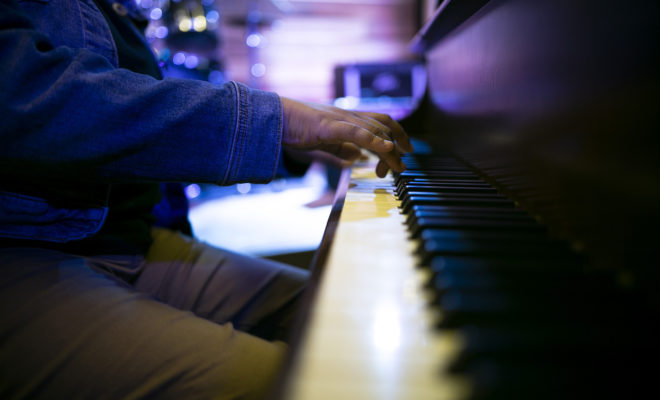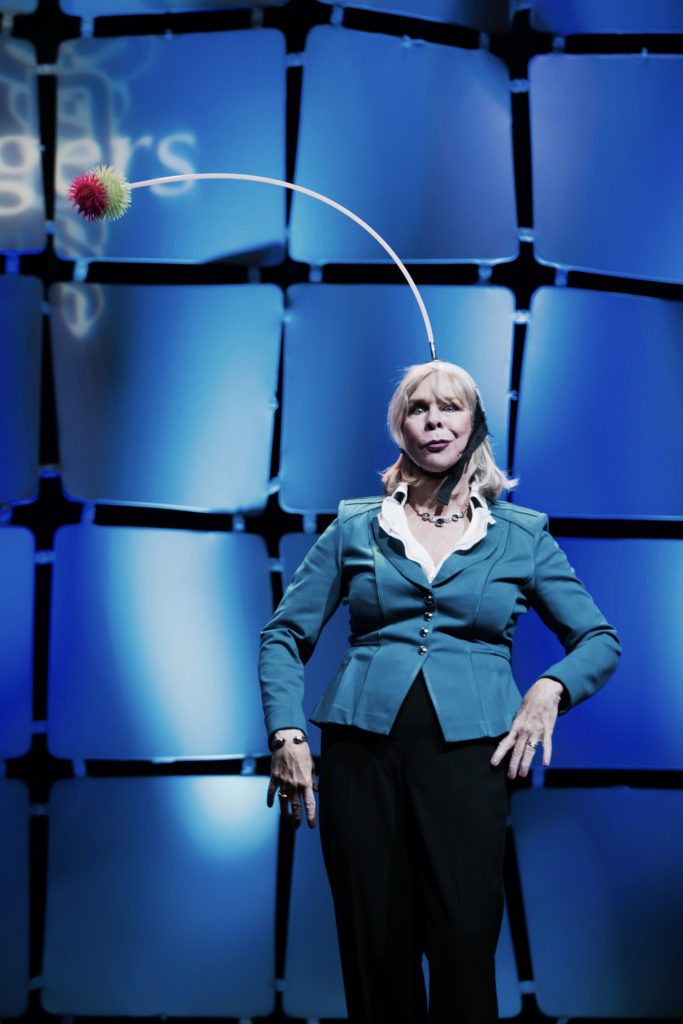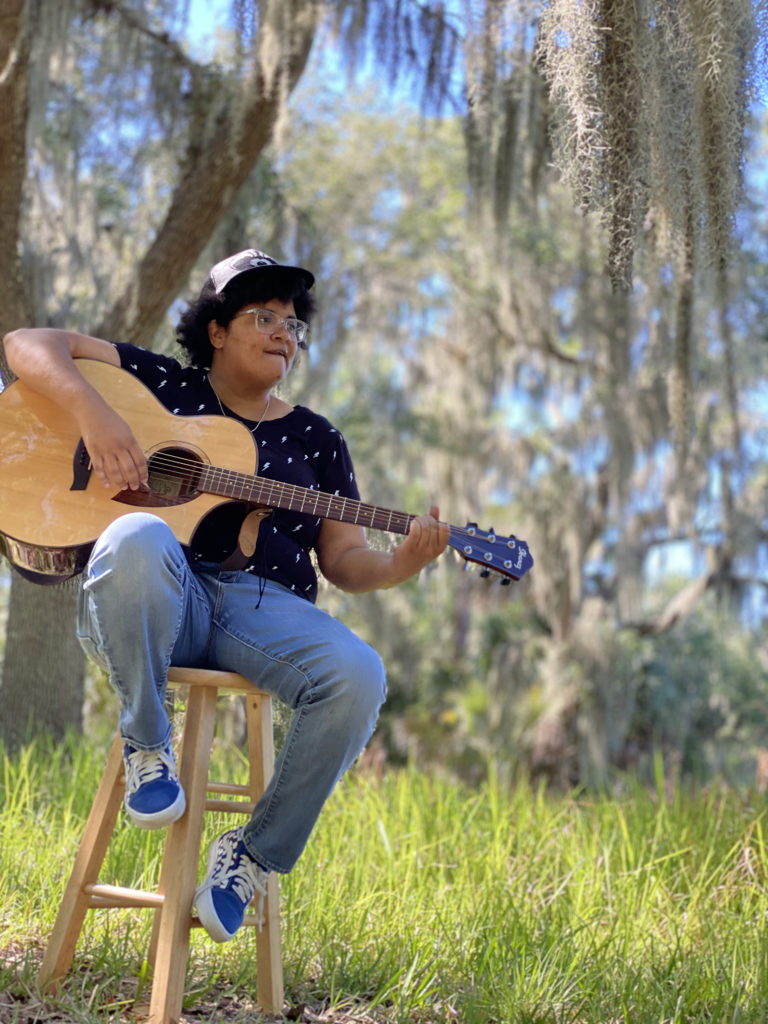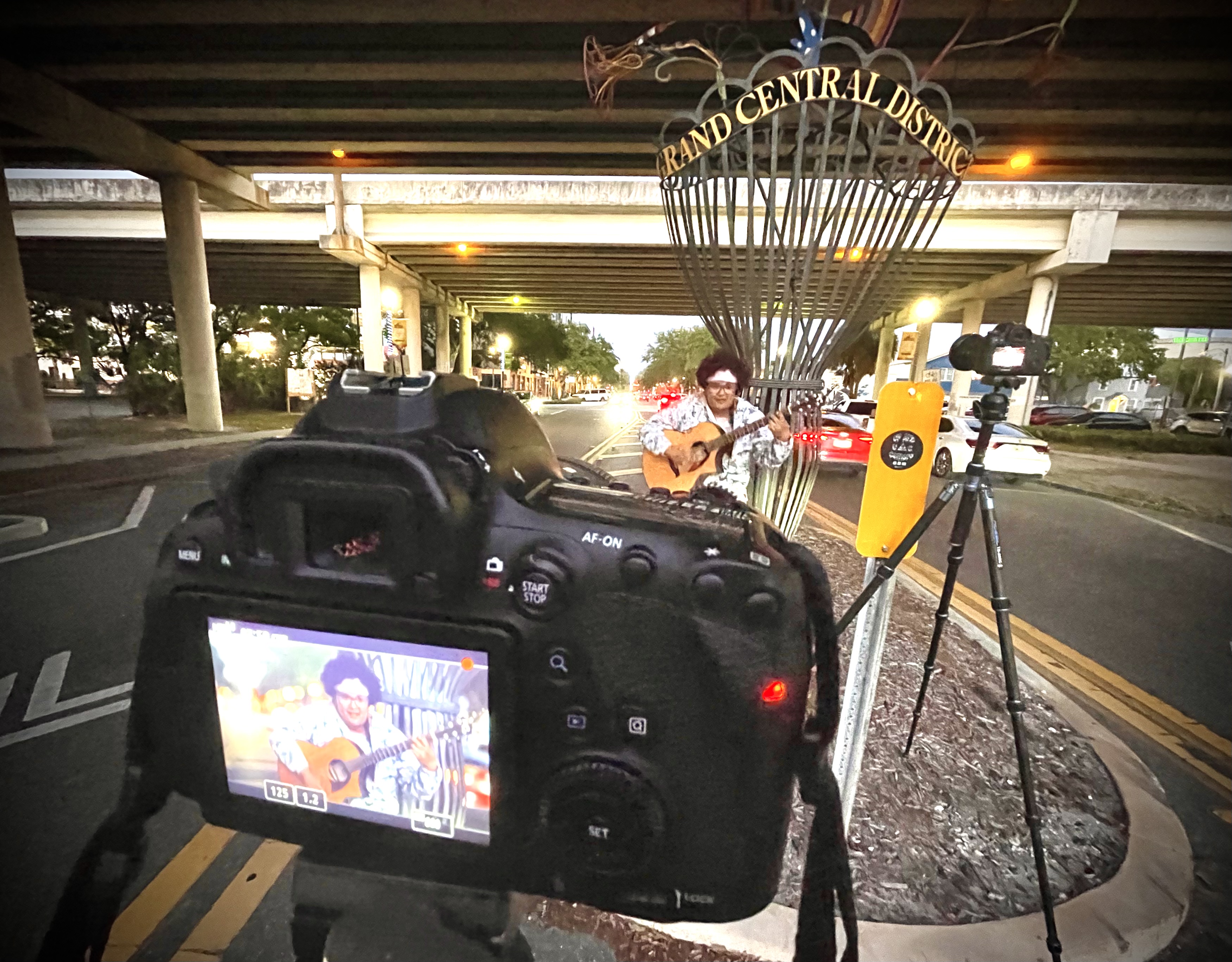
Feature
Committing to Creativity: Local Experts Share Their Best Tips
By Ryan G. Van Cleave | September 2021
When you hear the term “motivational speaker,” you might not envision a grown woman on stage wearing a helmet with swiveling antenna, but that’s exactly what Sarasota resident Linda Larsen has done. Many times. Thanks to her MFA in Acting from Florida State and former careers as an actress and social worker, Linda realized that delivering the same messages in the same ways wasn’t going to motivate anyone. Her solution was to get creative and do something different.

“Four-year-old kids ask about 400 questions a day,” she explains, “but adults don’t. We beat it out of them. They stop asking questions, and they stop taking risks.” That’s the exact opposite of the formula for being creative. As for what creativity exactly is, well, that’s a bit trickier, she admits. “Trying to describe creativity is a lot like trying to nail Jell-O to the wall.”
But Linda has plenty of ways to encourage creativity in both kids and adults. She recommends:
- Raise your hand, even if you don’t know the answer.
- Ask “stupid questions.” Lots of them.
- Challenge assumptions.
- Avoid creativity-killing phrases such as “That won’t work!”
or “That’s been done before!” - Don’t worry about looking foolish or being right.
- Play more.
- Value creativity in others.
- Value creativity in yourself.
“A popular misconception about creativity is that you’re either born with it or not,” Linda says. “We certainly have inclinations, like being more emotional or big-picture focused, but it can so easily be learned.” A lot has to do with the mindset people have. If they think something is going to be evaluated, they freeze up. If they think it’s play time, they open up. Creativity is always being in play-time mode. It’s about being as open to strange ideas as logical, fact-based ones.
Jennifer Msumba, a Florida-based autistic filmmaker and musician, has learned to trust creativity to help her persevere through challenges and setbacks. Creativity played a big part in the music videos she began posting on YouTube in 2013. And creativity was key in the numerous short films she wrote and directed that promote tolerance and understanding, and in the writing of Shouting at Leaves, her forthcoming memoir that details the struggles and triumphs of her life from childhood to adulthood.

“When I want to get into my creative zone, I usually start with music,” Jennifer says, “because most of my screenplays, films, and stories are based on songs I have written. Something about strumming my guitar brings out thoughts and contemplations in me. I write the music before I write the lyrics, so I know it is the music that helps me become creative.”
For Jennifer, creativity allows someone’s feelings to become tangible, regardless of the medium. “I think we are all wired to be creative in some way. Even finding solutions to everyday problems is a way of being creative. For example, if you figure out how to stop your toilet from leaking until you can call the plumber? That is being creative.”
Jennifer believes that one trait creative people share is a willingness to show their inner self, regardless of what other people may think. “I believe all people have potential for creativity expressed in different ways, but the people who seem more creative are the ones who don’t mind sharing what is inside them. Sometimes I feel like doing something creative can be like a secret code to your feelings. You don’t have to come right out and say your feelings—you can express them more abstractly and that feels safer.”
Both Linda and Jennifer use their creativity to inspire and support others. Linda changes lives when she stands on a stage, and Jennifer changes lives through the screen and page. If they both did what everyone else did, neither would enjoy the success they’re finding today. Linda likely wouldn’t be an international humor-based motivational speaker and one of only 232 people worldwide to be inducted into the Speaker Hall of Fame. Jennifer wouldn’t have just won the award for Best Short Documentary at the 16th annual Sunscreen Film Festival for her film The Fish Don’t Care When It Rains.

“Every business that’s successful today is successful because of creativity—innovation in business is critical. Adaptation is a must,” Linda says. “If nothing else, that’s the lesson of this past year and a half of COVID-19. We must adapt in new, creative, different ways if we are going to survive. We can’t just do whatever everybody else has done before. That’s over. That’s history.”
Even if it means wearing a swivel antenna helmet to teach people about the myth of multitasking.
To learn more about Linda Larsen, please visit lindalarsen.com. To learn more about Jennifer Msumba, please visit jennifermsumba.com.




You must be logged in to post a comment Login